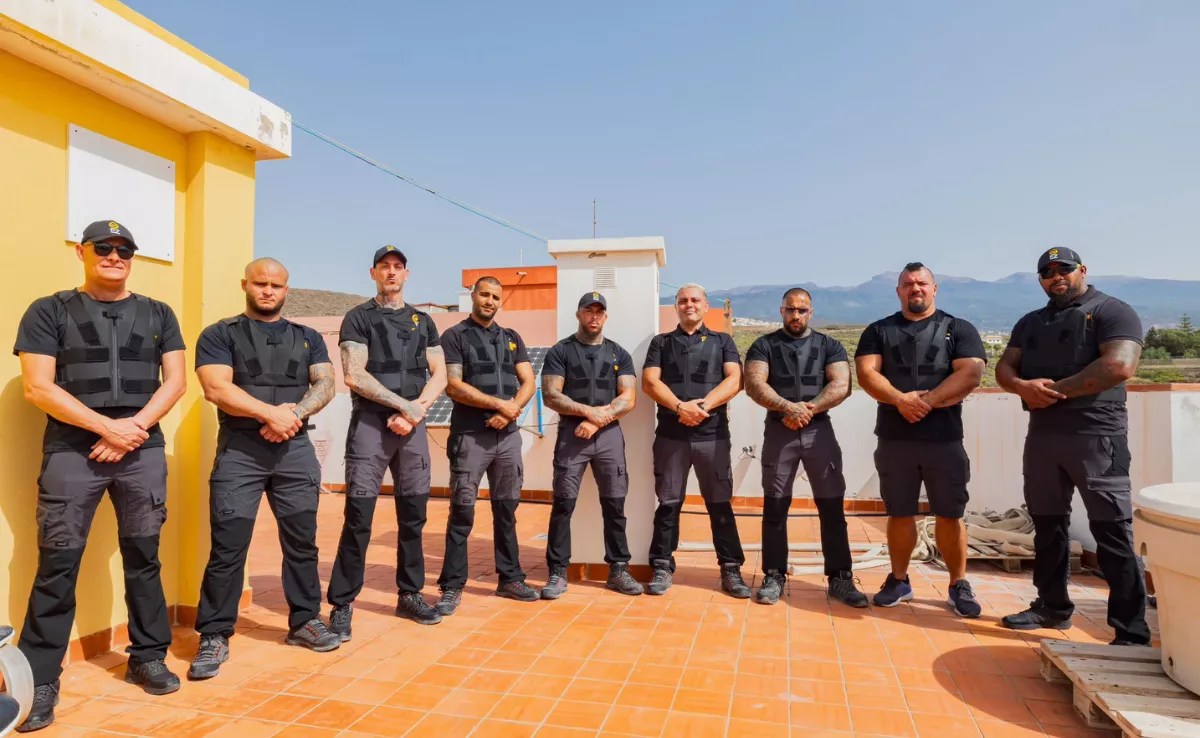On July 22, 2018, Alexander Canino Hernández was walking along the coast of Acentejo with some friends when he slipped and fell from a height of 20 meters, causing a serious head injury that left him with significant sequelae in speech, reasoning and mobility, against which he continues to fight to recover.
Álex, as his closest friends call him, never gave up, nor did his father and mother, who have done the impossible to pay for the therapies that help his rehabilitation.
They have lived between Galicia and Barcelona, they have traveled to the United States to try stem cell therapies and have left their medical records in dozens of hospitals on the Peninsula and in various countries in America and Europe.
The stem cell therapy carried out in December in the United States has given very good results. However, he needs more treatments since they did it three and a half years after the accident, “which is not the same as doing it from the first moment, that perhaps one or two would have been enough,” says his mother, Vanesa Hernández, following the explanations that the doctor who attended him gave him at the time.
The transplant consisted of removing adipose tissue from her belly and separating the stem cells in the laboratory. 80% had it placed intrathecally and the remaining 30% in their right arm. The first noticeable result was a few days later in this last member, where the spasticity in the hand was reduced “a lot”.
In Álex’s case, like that of other patients with brain damage, this type of treatment, “which is still in clinical trials in Spain, allows neurons to regenerate. His head is giving off sparks, like bare wires. I have faith that the cable will be attached and it will be a new neuron that will be connected -that is the synapse- and that it can recover little by little”, confides Vanesa.
Before traveling to Miami, they started a campaign through the GoFundMe platform to raise the necessary 50,000 euros, but they barely got 910 euros, so they could only do one treatment. Months later they found a doctor in Spain who performs this type of therapy despite the fact that its effectiveness is not justified. “We get half the money and we see it great, but we start from the usual starting point: look for the money,” he laments.
Thus, his family decided to launch a new campaign, in this case through the teaming.net platform in which he asks for one euro per month, “the price of a coffee”. He knows that it is not easy because people are reluctant to this type of collaboration through the network and above all, if you have to put your account number, “although it is 100% secure and people can see everything with total transparency” , he emphasizes.
The objective is that in fifteen months the money can be obtained to carry out a new treatment and at the same time, Álex can continue with his daily therapies, which also have an excessive cost, a significant amount of money that must be disbursed monthly. “We are juggling, in addition to bracelets, aluminum bottles for water and keyrings, everything helps,” says her mother, who opened a Facebook page with the same name as the one she started more than a year ago on YouTube ‘Opening doors para Alexander Canino’, in which he publishes his son’s advances.
“Sometimes I wish I could upload videos more often but my son’s progress isn’t quick and fast,” he says.
“It is true that stem cells are a bomb, but without work they do not work.” For this reason, Alexander continues to do his therapy, to stimulate his brain so that he learns to do things again.
Vanesa doesn’t feel like a heroine or anything like that. “Any father or mother would do the same as us. This comes and she doesn’t ask your permission. This situation can happen to anyone, in this case it has happened to my son, like many people we have met with brain damage and that makes you think that life is nothing, either you take advantage of it or it flies away ”, he reflects.
In these almost four years she has lost count of how many doctors she has contacted through emails and the number of groups of families with brain damage in which she participates around the world, with whom she shares her experience and that she, at least, it serves as therapy. “I always encourage all the people who are in the same situation as me. My phone is ready for them, because I saw myself very alone during the first six months in Barcelona in which everyone told me that everything was black.
Alex has also changed a lot. Next month he will be 20 years old, he is already a man, he has developed a lot physically and his autonomy is increasing.
Vanesa and her husband are aware that there is still a long way to go, but it doesn’t matter, “as long as he keeps moving forward and God allows me, I have all the time in the world,” he stresses.
They can be obtained at the Tecnolince cyberlocutory, in La Matanza de Acentejo; at the El Buda Goloso cafeteria, in Las Canteras; and in Tacoronte in Autoagro, in the La Sucursal tobacconist and in the restaurant Wherever you want, in Mesa del Mar
















